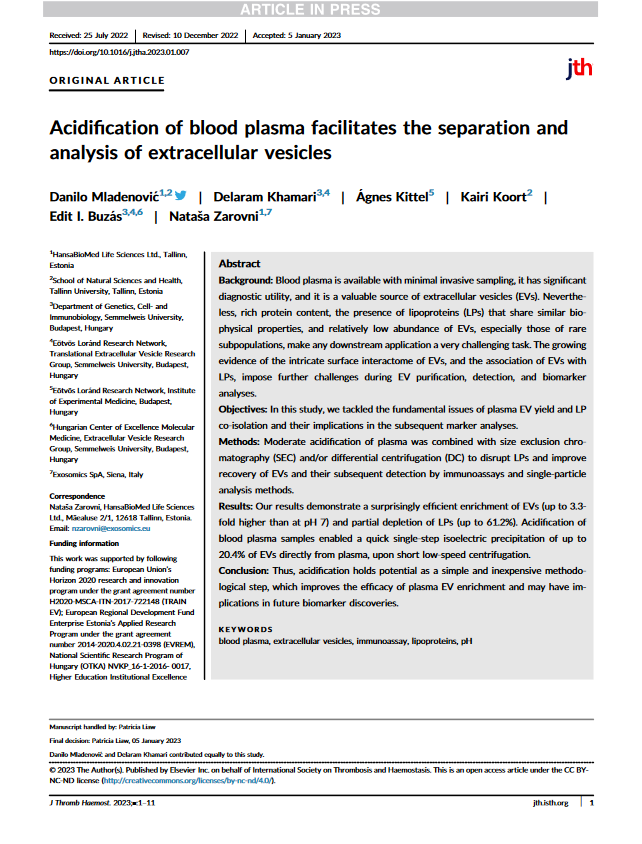17.02.2023
Acidification of blood plasma facilitates the separation and analysis of extracellular vesicles
ScienceDirect, 2023
Abstract
Background
Blood plasma is available with minimal invasive sampling, it has significant diagnostic utility, and it is a valuable source of extracellular vesicles (EVs). Nevertheless, rich protein content, the presence of lipoproteins (LPs) that share similar biophysical properties, and relatively low abundance of EVs, especially those of rare subpopulations, make any downstream application a very challenging task. The growing evidence of the intricate surface interactome of EVs, and the association of EVs with LPs, impose further challenges during EV purification, detection, and biomarker analyses.
Objectives
In this study, we tackled the fundamental issues of plasma EV yield and LP co-isolation and their implications in the subsequent marker analyses.
Methods
Moderate acidification of plasma was combined with size exclusion chromatography (SEC) and/or differential centrifugation (DC) to disrupt LPs and improve recovery of EVs and their subsequent detection by immunoassays and single-particle analysis methods.
Results
Our results demonstrate a surprisingly efficient enrichment of EVs (up to 3.3-fold higher than at pH 7) and partial depletion of LPs (up to 61.2%). Acidification of blood plasma samples enabled a quick single-step isoelectric precipitation of up to 20.4% of EVs directly from plasma, upon short low-speed centrifugation.
Conclusion
Thus, acidification holds potential as a simple and inexpensive methodological step, which improves the efficacy of plasma EV enrichment and may have implications in future biomarker discoveries.
High-binding capacity 96-well plates manufactured by our partner Biomat are featured in this study.
>> View article


